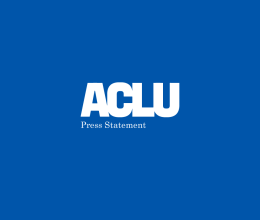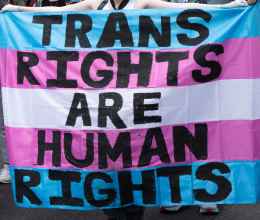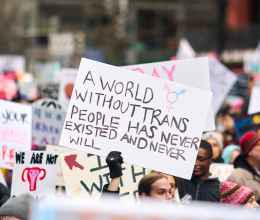
Late last week, a bill popped up on the legislature’s 2017 bill list with the title, “Government Nondiscrimination Act”. With a title like that, interested citizens might understandably believe the bill would be solidifying Wyoming’s stance against discrimination in the Equality State. But they would be wrong.
More aptly titled The Wyoming Government Discrimination Act, HB 135 would legalize discrimination against same-sex couples and transgender people, and would make it impossible for any branch or part of the government to enact or enforce local non-discrimination ordinances and federal protections for the LGBT community.
The Government Discrimination Act, at its core, says anyone with certain religious beliefs or moral convictions about marriage and gender identity can act on those beliefs and convictions to discriminate against LGBT people and same-sex couples. The Act then goes on to forbid any branch of government, state or local, or any board, agency, department, or institution, from doing anything about it.
The Government Discrimination Act’s effects would be significant and immediate. Laramie’s Non-Discrimination Ordinance would be unenforceable, and potentially even illegal. No other city would be allowed to enact non-discrimination protections. County clerks would be allowed to deny same-sex couples a marriage license, and would be able to do so without consequence. A doctor would be able to decline care for the child of a same-sex couple, and could keep her or his license. State contractors or grantees which provide essential social services, such as a homeless shelter or counseling agency, could turn away LGBT people and keep their state funding.
The Government Discrimination Act would create broad avenues for people to sue the state of Wyoming or any of its subdivisions – like the city of Laramie – for enforcing nondiscrimination ordinances or laws regarding same-sex couples. The bill would even allow people to sue the government without the government having done anything: if a person believes, for example, that by passing a municipal non-discrimination ordinance a city has violated their religious beliefs or moral convictions, the person could sue for damages.
The Government Discrimination Act purports to protect religious freedom. But it really does the opposite: it attempts to codify one particular religious belief and establish that belief’s value above all others. This runs contrary to the long-established protections of the First Amendment, and threatens to weaken our state and country’s longstanding practice of treating all religions and religious beliefs with equality and respect.


